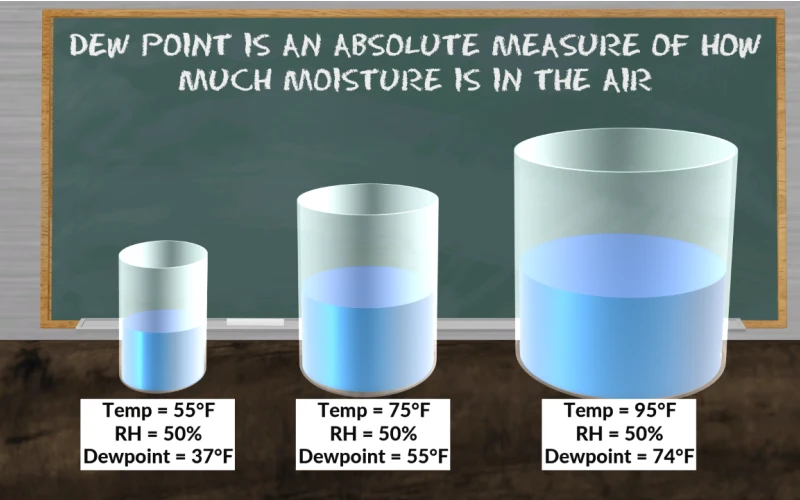High Dew Point Impact on Human Comfort and Health
April 18, 2025 | News | No Comments

# High Dew Point Impact on Human Comfort and Health
## Understanding Dew Point and Its Significance
The dew point is the temperature at which air becomes saturated with water vapor, leading to condensation. A high dew point indicates a high level of moisture in the air, which can significantly affect human comfort and health. When the dew point rises above 65°F (18°C), most people begin to feel discomfort, and values above 70°F (21°C) can become oppressive.
## How High Dew Point Affects Human Comfort
High dew point conditions create a muggy, sticky feeling in the air because the body’s natural cooling mechanism – perspiration – becomes less effective. When the air is already saturated with moisture, sweat doesn’t evaporate as quickly from the skin, making it harder for the body to regulate its temperature.
This phenomenon explains why 90°F (32°C) with a dew point of 75°F (24°C) feels much more uncomfortable than 90°F with a dew point of 55°F (13°C). The higher moisture content in the first scenario makes the heat feel more intense and oppressive.
## Health Implications of High Dew Point Conditions
### Heat-Related Illnesses
Extended exposure to high dew point conditions can lead to various heat-related health issues:
– Heat exhaustion
– Heat stroke
– Dehydration
– Increased cardiovascular strain
### Respiratory Problems
For individuals with respiratory conditions like asthma or COPD, high dew point conditions can be particularly challenging. The moist air can:
- Make breathing more difficult
- Aggravate existing respiratory conditions
- Increase the risk of mold and allergen exposure
## Vulnerable Populations
Certain groups are more susceptible to the effects of high dew point:
Elderly Individuals
Older adults often have reduced ability to regulate body temperature and may have pre-existing health conditions that are exacerbated by humid conditions.
Young Children
Children’s bodies heat up faster than adults’, and they may not recognize the signs of heat stress as quickly.
Outdoor Workers
Those who work outside for extended periods face increased risk of heat-related illnesses during high dew point conditions.
## Mitigation Strategies
To cope with high dew point conditions:
1. Stay hydrated by drinking plenty of water
2. Limit outdoor activities during peak heat and humidity
3. Use air conditioning to lower both temperature and humidity
4. Wear lightweight, breathable clothing
5. Take cool showers to help regulate body temperature
## Conclusion
Understanding the impact of high dew point on human comfort and health is crucial, especially as climate change may lead to more frequent periods of high humidity. By recognizing the signs of heat stress and taking appropriate precautions, individuals can better protect themselves during these challenging weather conditions.
Keyword: high dew point